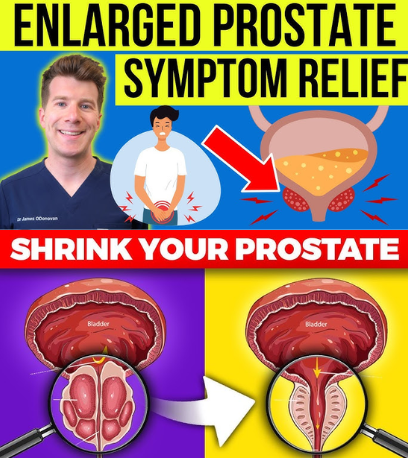
What Is an Enlarged Prostate?
An enlarged prostate, medically known as benign prostatic hyperplasia (BPH), is a common condition that affects men as they age. The prostate is a small gland located below the bladder and surrounding the urethra, responsible for producing seminal fluid. When the prostate grows larger than normal, it presses against the urethra and bladder, making it harder to urinate. While it isn’t cancer, BPH can significantly affect quality of life if left untreated.
Why Does the Prostate Enlarge?
The exact cause of BPH isn’t fully understood, but age and hormonal changes play a big role. Here’s what’s commonly linked to prostate enlargement:
- Aging – The risk increases after age 40, and it’s extremely common in men over 60.
- Hormonal changes – Shifts in testosterone and estrogen levels may stimulate prostate growth.
- Family history – Genetics can increase susceptibility.
- Lifestyle factors – Obesity, poor diet, and lack of exercise contribute.
- Medical conditions – Diabetes and heart disease raise the risk.
Think of the prostate like a tree root. As it grows, it spreads into areas where it doesn’t belong—eventually blocking the natural flow of urine.
Common Symptoms of Enlarged Prostate
Not all men with BPH have noticeable symptoms, but when they do appear, they can range from mild to very disruptive. The most common include:
- Frequent urination, especially at night (nocturia).
- Difficulty starting urination.
- Weak or interrupted urine stream.
- Feeling like the bladder isn’t completely empty.
- Urgent need to urinate.
- Dribbling at the end of urination.
In severe cases, BPH can lead to urinary tract infections, bladder stones, or even kidney damage if untreated.
Video : Mayo Clinic Minute: Steam treatment for enlarged prostate
How BPH Affects Daily Life
Living with an enlarged prostate can feel frustrating. Imagine waking up multiple times at night just to use the bathroom, struggling to sit through a movie, or always scouting for the nearest restroom. These constant interruptions can disrupt sleep, reduce productivity, and increase stress.
Diagnosis: How Doctors Detect an Enlarged Prostate
To confirm BPH, doctors typically perform:
- Physical exam – Including a digital rectal exam to feel the size of the prostate.
- Urine test – To rule out infections or other conditions.
- Blood test – Checking kidney function and PSA (prostate-specific antigen) levels.
- Ultrasound or imaging – Measuring prostate size and bladder health.
- Uroflowmetry – Testing urine flow strength.
These tests help distinguish BPH from more serious issues like prostate cancer.
Treatment Options for Enlarged Prostate
The good news? BPH is highly treatable, with options depending on severity:
- Lifestyle changes – Reducing caffeine, alcohol, and evening fluid intake helps.
- Medications – Alpha-blockers relax prostate muscles, while 5-alpha reductase inhibitors shrink the gland.
- Minimally invasive procedures – Techniques like UroLift or laser therapy improve urine flow without major surgery.
- Surgery – For severe cases, procedures like TURP (transurethral resection of the prostate) remove excess tissue.
Choosing the right treatment often depends on how much symptoms interfere with daily life.
Lifestyle Tips for Managing BPH
Beyond medical treatment, small habits can make a big difference:
- Stay active—exercise improves bladder function.
- Maintain a healthy weight to reduce pressure on the bladder.
- Avoid bladder irritants like spicy foods, caffeine, and alcohol.
- Practice double voiding (urinating, then trying again after a few minutes) to empty the bladder.
- Manage stress, since anxiety can worsen urinary symptoms.
When to See a Doctor
Don’t brush off urinary problems as just “getting older.” Seek medical attention if you:
- Struggle to start or maintain urine flow.
- Wake up multiple times at night to urinate.
- Experience painful urination or blood in urine.
- Notice sudden inability to urinate (a medical emergency).
Prompt diagnosis ensures proper treatment and prevents complications.
Video : What Causes An Enlarged Prostate? | BPH Explained
Conclusion: Taking Control of Prostate Health
An enlarged prostate may be a common part of aging, but it doesn’t have to control your life. By understanding the causes, recognizing the symptoms, and seeking timely treatment, men can manage BPH effectively and regain comfort. With modern medicine, lifestyle adjustments, and regular checkups, living well with an enlarged prostate is absolutely possible. Remember—paying attention to your prostate health now means a healthier, more comfortable future.


